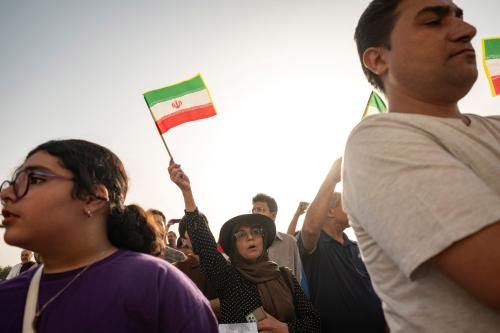Iranians have watched the chaotic and increasingly violent denouement of the Egyptian revolution with keen interest. They have not— and, for obvious budgetary and diplomatic reasons, cannot— insert themselves into the Egyptian drama with the immediacy or the magnitude of the Gulf states, which have moved quickly to offer mammoth financial support to the post-Morsi government. However, Tehran appreciates the significance of Egypt’s
After all, Iran’s leadership knows a thing or two about the unpreditable arc of revolutionary change, especially during its early years. Iran’s revolution experienced profound contestation from a variety of different elements of society from the moment the Shah left the country. In July 1980, the Islamists uncovered a plot orchestrated by senior military commanders, with the help of Baghdad and a left-wing group that had been part of the revolutionary coalition. A year later, Iran’s first post-revolutionary president had been forced from office, and after a, fled the country disguised as a woman.
Like so many other Washington types who focus on the region, my own introduction to the Middle East came courtesy of Cairo. A summer living a few blocks from Tahrir Square and studying Arabic at the American University in Cairo
The Brookings Institution is committed to quality, independence, and impact.
We are supported by a diverse array of funders. In line with our values and policies, each Brookings publication represents the sole views of its author(s).




Commentary
Tehran’s Take On Egypt’s Revolutionary Coup
July 5, 2013